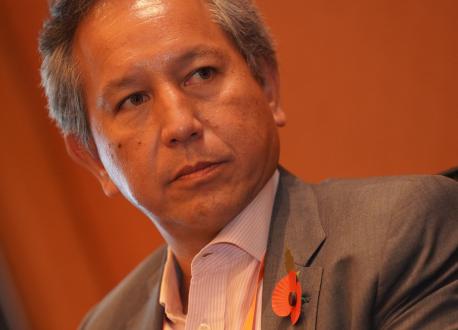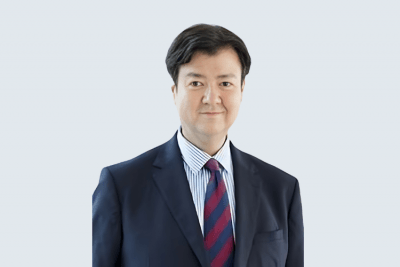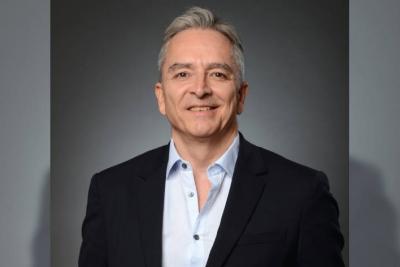Wealth Solutions & Wealth Planning
Pershing’s Mark Nelligan on How Advisers Stay Relevant in the New Age of Advice

Mark Nelligan of Pershing Singapore, a BNY Mellon company
Dec 16, 2019
In the worlds of jazz legend Quincy Jones, ‘everything must change’. Mark Nelligan, Chief Executive Officer, Singapore for Pershing Securities Singapore, a BNY Mellon Company, understands this fully, both instinctively and from long experience in the wealth management sector. He told delegates at the Hubbis Asian Wealth Solutions Forum that, according to recent studies, about 60% of the younger generations of HNWIs are not happy with their family wealth manager. “What are their options and how will that affect the private banking business?” he pondered. “How can wealth advisory firms develop and hone their strategies to appeal to the future generations that will create or inherit Asia’s vast wealth?”
Nelligan began his presentation by telling the audience that by 2020, millennials will represent 50% of the global workforce. “Twenty-five years further on, by 2055, some USD30 trillion worth of assets will have been transferred to them.”
He then highlighted a study by Simon-Kucher & Partners who had interviewed some 600 HNWI millennials across the world, each having at least one private bank account, and at least USD500,000 of investible assets.
Could do (far) better
“The result was that less than 40% were happy with their advisors, while 60% were not. In Singapore, the figure is actually 59%, but in Hong Kong far worse, with 80% expressing dissatisfaction, which is really not very good news.”
And even worse, he cited research that shows that only about 20% of millennials understand what their parents want or plan to do with their legacy. “Only 20% were well informed,” he explained, “while 80% had little or no idea.”
And he reported that based on research published in the Cerrulli Edge, US Retail Investor Edition, 2Q 2019, he also knows that most wealth – 60% - is squandered over time because of bad communication, while only about 3% is lost due to poor advice. “In short,” he commented, “communication is clearly the critical element in wealth transfer and preservation.”
Stay with us, please…
Still citing information from the Cerrulli Edge report, Nelligan highlighted how amongst the younger generations, only about 20% say they will stay with the existing family advisor once they inherit. Instead, they would take up other options, such as moving their assets to combine with their existing assets, move these assets to another advisor, using an online brokerage account to self-manage their wealth, use robo-advisors, leave the funds in a trust.
“But whatever the option taken up,” Nelligan observed,” it is fairly clear that the vast majority do not plan to use their parents’ private bank or wealth management firms.”
Then referring to the 2018 edition of the UBS/Campden Wealth Global Family Office Report, Nelligan reported that four in ten of wealthy individuals source deals through their personal connections and less than one in five use financial advisers. “They are networking much more internally through their own resources and contacts and relying far less on third parties.”
You can turn the tide
Nelligan then lightened up the proceedings, by joking that he had done enough to depress the assembled wealth management experts, and now wanted to offer his insights into how to fight back and become more relevant to these younger generations.
Citing a special report on which Pershing Securities Singapore had worked in August this year with Hubbis, titled Transferring Wealth to the Next Generations – Making the Most of the Opportunity, Nelligan highlighted some vital initiatives.
“You can connect with the family across generations to build deep relationships beyond the patriarch or matriarch,” he commented. “You can help family members build a plan to educate future generations on nurturing a legacy. You should provide advice and strategies to involve future generations in money management decisions. You can guide the founders on how to anticipate mistakes the future family generations may make with their money management decisions. You should advocate for an independent expert to work with them and you on estate planning. And you should help your client keep the lines of communication open across generations to provide transparency, remembering that so much wealth is lost, as I said earlier, through poor communication.”
He observed that by the wealth management firm becoming the mediator across the family, not just for the holder of the wealth today, but right across the generation, the wealth firm today is taking the right steps to preserve and build their business.
Working with your clients
“We heard a lot from the panels today at this Forum about education,” he noted, “and it is very important, and sometimes you need to act as a facilitator and bring in experts, so enhance your own expertise by bringing in third party experts. And you must be inclusive, remembering always that according to the Simon-Kucher research, some 60% of wealth is squandered because of bad communication.”
He then turned to the vital importance of insurance solutions. “When we conducted our round table discussion amongst experts with Hubbis a few months ago,” he explained, “these experts unanimously agreed that insurance as an asset class is an ideal means of helping with the transfer of wealth, but also that great work was required to educate clients on how the solutions will work financially, and structurally for them to expedite their wealth and family transition goals.”
He noted how assets can be so tidily wrapped in an insurance policy and easily pass down to the next generations. “Insurance policies also have the advantage of not being contested,” he reported, “whereas wills can be contested. As a vehicle for transferring wealth, that is a very positive factor.”
And with that, Nelligan turned back to the vital importance of staying relevant. “There are many new opportunities presenting themselves as you build relationships with the next generations,” he remarked. “Financial planning education, directing clients to the best mortgage providers and rates for these younger, asset hungry investors, identifying appropriate retirement savings plans as early as possible, guiding them on paying off debt, as the younger generations also take on more debt, offer tailored and relevant ‘concierge’ type services, and directing them towards optimised estate and tax planning services.”
Pershing’s close encounters
BNY Mellon’s Pershing is deeply involved in all these important developments in wealth management. The firm is a business-to-business provider of global financial solutions to advisors, asset managers, broker-dealers, family offices, fund managers, registered investment advisory firms and wealth managers. Pershing also acts as a clearing broker for partner financial organisations.
Established in Singapore in 1974, BNY Mellon in Asia provides premier financial services to organisations in Singapore with a broad spectrum of technology and investment solutions to help these organisations better serve their clients.
The services include asset servicing, collateral management and segregation, corporate trust, depositary receipts, foreign exchange sales and trading, investment management and treasury services. BNY Mellon is the first issuer of sponsored depositary receipts from Singapore and was one of the first organisations to offer local brokers, and their clients, online investing services to the US market.
How to ‘Wow’ the millennials
To conclude his lively and engaging talk, Nelligan turned back to the Simon-Kucher research from its report titled: Strategies to win in the new private banking World, Master the Art of Attracting and Retaining Millennials. He noted that the report focuses on eight ‘Wow’ factors for attracting and retaining millennial customers.
“They highlight 24/7 access, anytime and anywhere,” Nelligan explained. “Transparency is vital, with no hidden fees. Bespoke offerings directed at them and exclusive services as well as loyalty programmes are essential. They like to make an impact on the local economy and climate, for example. The like personalised communication, they dislike spam. They want to choose the adviser they work with, rather than simply being allocated someone. They like a hassle-free choice and easy mode of selection, so three clicks at most and they are sorted. And they prefer simplicity and transparency to complexity and opaqueness, while they certainly dislike excess information.”
His final word was that an estimated 85% of the Asian billionaires are going to transfer over USD32 trillion to the next generations in the decades ahead. “That is a vast, vast amount of wealth,” he remarked, “and if you follow some of these guidelines you can stay focused and relevant for the market of the future.”

Chief Executive Officer at Pershing Singapore, a BNY Mellon company

More from Mark Nelligan, Pershing Singapore, a BNY Mellon company
Latest Articles






